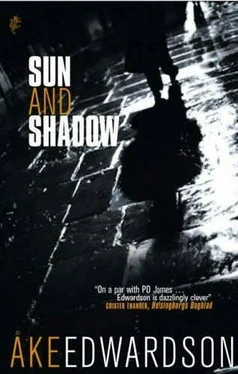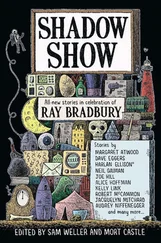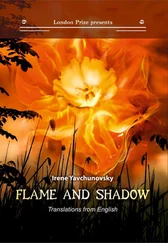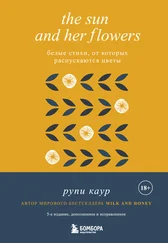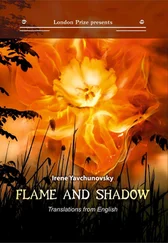“Okay,” Morelius said.
“But it’s no good,” Patrik said. “There isn’t anywhere.”
“I’m with you on that,” Morelius said.
“What are you going to do on New Year’s Eve?” asked Bartram.
“What?”
“The night of the century. Of the millennium. Will we be seeing you up at Skansen?”
“Eh?”
“Won’t you be there? We’ll be there.”
“You mean you’ll be working on New Year’s Eve?”
“Of course. Both Morelius and I are on duty then, and we’ll be up at Skansen when the big moment comes.”
“Jesus Christ! Working on New Year’s Eve!”
“Why not? Half of Gothenburg will be up on that hillside, in any case. The younger half, at least. And we’ll be getting paid for being there.” He turned to Morelius. “We’re in luck, aren’t we, Simon?”
“We certainly are.”
Patrik looked at Maria and shook his head.
“We’d better get going,” he said.
“Go home and get warm,” Morelius said.
“It’s a free country,” Patrik said. He enjoyed saying that, because it sucked.
Bergenhem had finished his late shift but hadn’t gone straight home. Instead he’d driven southward and played the fourth CD from Springsteen’s Tracks, happy with you in my arms, happy with you in my heart. Last night Martina had whispered something and stroked his arm, but he’d pretended to be asleep. She’d turned away, and he really did fall asleep in the end. He’d tried not to think.
The bay glimmered over to the right as he drove through Askim. He kept on straight ahead. Traffic was lighter as the city started to peter out. Lower, richer. The detached houses twinkled like oases as he drove past, tires singing. The last of the buses pulled up at stops that seemed deserted in the darkness, happy, darling, come the dark, happy when I taste your kiss, I’m happy in a love like this, and Bergenhem listened as he drove. It was like listening to a language he didn’t understand but nevertheless could follow every word.
He thought about his child. He thought about his wife. He took the Billdal slip road and followed the minor roads as far as the sea, parked, and got out of the car. The lights from a fishing boat bobbed up and down around the islands in the southern archipelago. All around him were the outlines of beached sailing boats. More lights twinkled out to sea, and in the distance was a broader light that could well have been the midnight ferry to Fredrikshavn.
Before long its crossing would be labeled a New Year’s cruise. A new millennium greeted in international waters, Bergenhem thought. Water. He squatted down and dipped his hand into the water: it felt like a glove of ice. I’m in deep water, he thought. I really must sort this out.
Back on the main road he noticed a patrol car parked at a bus stop. The driver was standing beside his car. Bergenhem couldn’t see anybody else in the car as he drove past. In his rearview mirror he could see the officer gazing out over the houses and treetops. Maybe he had a cigarette in his hand. We all need a break now and then, Bergenhem thought. He had the impression at first that he recognized his colleague, but he wasn’t sure now. One thing was clear: it wasn’t somebody from the Frölunda station.
There was a sudden hard pattering on his windshield: hail, which soon turned into snow, the first of the winter. Almost November. Springsteen was still singing: and honey I just wanna be back in your arms, back in your arms again. Bergenhem drove home and crept down between the cold sheets. Martina was asleep and he pretended to be as well.

Winter’s head lolled onto his shoulder and he woke from his doze with a start.
“Go and lie down on the guest bed,” his mother said.
“I’m all right.”
“He’s resting now.”
Winter looked at his father’s face, which had lost what had remained of the color it had possessed when he first saw him in the hospital. That was three days ago, or was it four?
How is he still managing to breathe? Winter went up to the bed. His father’s head was turned toward the window, but his eyes were closed. The outline of the mountain peaks was sketched against the sky. An airplane was descending toward Málaga. Winter thought of Sweden, and as he did so the mobile phone rang in his pocket. He strode quickly out into the corridor and answered.
“How’s it going?”
“Not good, I’m afraid. Worse.”
“I’ll try to get there tomorrow.” His sister coughed, wheezed. She tried to say something, then tried again. “It was only one hundred and two this morning.”
“You ought to be in the hospital. High temperatures like that are dangerous, Doctor.”
“It’s a da…, a da…”
“I beg your pardon? I can’t hear what you’re saying, Lotta.”
“It’s a damn nuisance to be suffering from the flu of the century-no, the flu of the damn millennium-when Dad’s in the state he’s in.”
Winter didn’t know what to say. The blue light coming from the corridor was faint, but, even so, brighter than that in his father’s room. It was reminiscent of a tunnel of ice.
“Your temperature’s bound to go down,” he said, and could hear two nurses talking softly to each other at the office desk, where the light was different, warmer.
“I think I’ll take some pills that will knock me out,” she said. “Make or break.”
“You know best.”
“The hell I do. But I’m not the important one now.” She started coughing, rasping, gasping for breath. She tried to say something, but coughed once more. “I might manage to say a few words to Mom.”
“I’ll get her,” Winter said, going back into the room and handing the telephone to his mother.
His father mumbled something and turned his head, and Winter could see that he was awake.
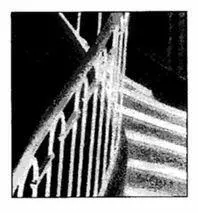
*
The bank, Unicaja, had eventually received the money, two minutes before closing time, following three calls by Winter to his bank in Sweden: reference number, account number, Swift code. The bank did not accept payments in Spanish currency: Winter had no alternative but to pay the exchange fees.
He missed the feeling of having a plastic card in his hand. The notes were new and stiff in the inside pocket of his jacket. He paused as he emerged from the bank and took stock, determined to avoid crowds of people.
Another month, but it was still just as hot. That morning Salvador, his host at La Luna, had thrust his arms out wide and said something about el cielo azul. The blue sky, constantly hovering over the people who were desperate for some cooler weather.
Winter stood outside the bank in the main street, Avenida Ricardo Soriano. He felt hungry, more so than at any time since he’d arrived here. He turned right and bumped into Alicia. She was alone. Perhaps it was she who stopped and spoke to him.
“Have you sorted out your financial problems, Chief Inspector?”
“I’ve just picked up the money from Sweden,” he said, pointing at the bank window.
“That’s good.”
“It makes things easier.”
“Sí.”
“Now I can afford to have lunch.”
She checked her watch, but made no move to leave.
“Don’t let me keep you,” Winter said.
“I’ve just finished my shift,” she said.
“I see.” Winter shuffled uneasily. “I’d better have lunch before I drive out to the hospital.”
Читать дальше
